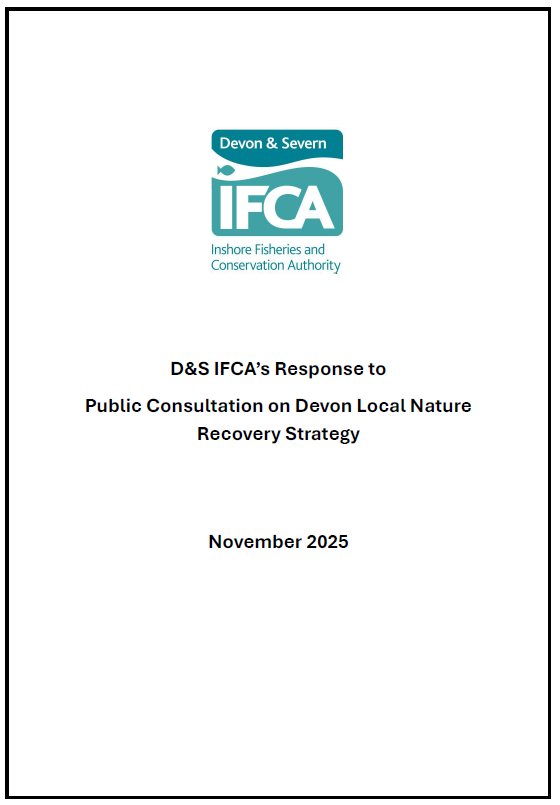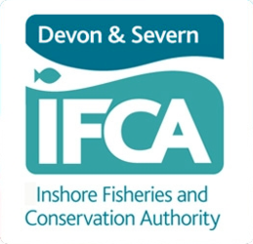D&S IFCA has submitted a detailed response to the public consultation on the Devon Local Nature Recovery Strategy (LNRS), helping to shape the future of nature conservation across the county’s land and coastal areas.
Devon County Council is preparing the Devon Local Nature Recovery Strategy, which gives an overview of Devon’s wildlife on land and in coastal areas, and sets out priorities and actions to help nature recover.


As the statutory body responsible for managing sustainable inshore fisheries and marine protected areas within its District, D&S IFCA was invited to respond to the LNRS consultation, specifically to comment on LNRS webpages covering species and habitats relevant to its remit.
These included molluscs, fish, intertidal invertebrates, invasive species, estuarine and cliff-nesting birds and the Coastal Wildbelt.
D&S IFCA also provided feedback on how intertidal fishing practices are represented and suggested improvements to the LNRS web mapping tool.
This builds on D&S IFCA’s engagement with the LNRS process in collaborative working groups since 2023.
You can read the full response here, and explore the Devon LNRS website at https://www.naturerecoverydevon.org.uk. For more background on what Local Nature Recovery Strategies are, and why they are being developed, visit the LNRS webpages on the gov.uk website.
Why D&S IFCA Responded
D&S IFCA’s work ensures that fishing activity is balanced with the conservation of important habitats and species. Its response aimed to support the LNRS team in presenting accurate, evidence-based information and in identifying practical, proportionate actions that reflect both ecological priorities and the realities of inshore fisheries management.
Key Messages from the Response
Species Management: D&S IFCA highlighted the need for robust evidence before implementing new actions and regulations, to make the best use of limited resources. It also emphasised the complexity of managing invasive species such as Pacific oysters, and the importance of aligning actions with national policy and sustainable aquaculture practices.
Fishing Impacts: The response clarified that some fishing activities, including netting and local aspects of intertidal handworking, are already regulated and monitored. It sought to ensure that sustainable fishing was recognised as a legitimate activity.
Data and Collaboration: D&S IFCA encouraged the use of shared technologies and data protocols to improve habitat assessments and reduce ecological disturbance. It also suggested that more accurate information on bycatch and fishery impacts would help target conservation efforts effectively.
Mapping Tool Improvements: D&S IFCA proposed adding specific pop-up information to the LNRS web mapping tool to explain its role and how to access permits and regulations, ensuring that activities are managed appropriately. Specifically, this could highlight that D&S IFCA is responsible for managing sustainable inshore fisheries and protecting the marine environment within its District. Its work ensures that fishing activity is balanced with the conservation of important habitats and species. Anyone wishing to fish commercially or recreationally in the District may require a permit, and should contact D&S IFCA for details on permits, current regulations and exemptions for other activities such as fishing for scientific purposes.
For more information on the work of Devon and Severn IFCA, please visit https://www.devonandsevernifca.gov.uk.
